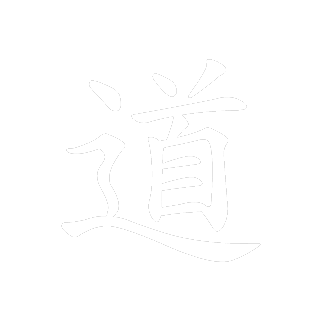Chunseungwon
Tradition Continues
A quick summary
Grandmaster Song teaches his students, "Lose Health, Lose Everything." For thousands of years, the great Masters have created, developed, and maintained practices to improve the human condition. These teachings are rooted in Nature and integrated into the modern era in which they were practiced and preserved. Grandmaster often expresses his amazement at how these philosophies and health practices, created by great humans, continue to be relevant and beneficial today, just as they were thousands of years ago. Preserving these teachings passed down to him is a great honor for Grandmaster, reflecting the name given to the Song Family Traditions, Chun Seung Won, "The House That Carries Tradition."

Xu Xuan Ping was a renowned practitioner of Chang Quan, also known as "Long Fist." He exclusively passed down his art and knowledge to the Song family, who diligently preserved and maintained these Shaolin-rooted traditions.

Grandmaster Song Yuanqiao continued the Song Family Traditions and was a disciple of Zhang Sanfeng. He inherited the "Southern Family Heaven Earth Style" Tai Chi and diligently preserved and maintained this tradition within the Song family.

The Hwarang were famous warriors of the Silla Kingdom who practiced the martial art of Soo Bak Ki. Soo Bak Ki encompasses kicking, striking, breaking, throwing, locks, holds, as well as weapon techniques. These techniques later evolved into modern disciplines such as Tae Kwon Do, Hap Ki Do, and Moo Sa Sool. The Song family continued to preserve and maintain the tradition of Soo Bak Ki.

Proper breathing is an essential aspect of maintaining good health. Through study and exercise, proper breathing contributes to overall physical and mental well-being. In traditional studies, the terms "Ki Gong" in Korean and "Chi Kung" in Chinese simply mean "Energy Development." Proper breathing is essential for good health.

Meditation is another essential practice for maintaining good health. Engaging in mental exercises and development contributes to overall physical and mental well-being. In traditional studies, practices such as "Moo Shim" or "Empty Mind" and "Hwa Dool" or "Chasing the Word" become tools for mental health. The mind plays a crucial role, and practicing mental health is essential for overall well-being.

Mobility and flexibility are fundamental for good health. Ancient practices like Shaolin Yi Jin Jing, which means "Muscle Tendon Change Classic," and Heo Jun's Doinchejo, which means "Right Way Body Exercise," are tools to promote overall health, particularly the body's ability to move. A body that can move naturally and is flexible reflects good health.

Heo Jun, a famous Korean Doctor of Eastern Medicine, authored the renowned book "Dongui Bogam." Eastern medicine encompasses acupuncture, acupressure, herbal medicine, nutrition, as well as practices for physical and mental health. Studying the principles of Eastern Medicine, even with a basic understanding and theory, can integrate with modern health practices and contribute to good health.

Baduk is the Korean term for the game Go in English, and Weiqi is the Chinese term for the same game. In ancient traditions, a martial artist's skill in Baduk was considered equivalent to their skill in martial arts. Baduk is a great tool for mental development and promoting health. Any skills developed in Baduk contribute to a healthy life.

Song Si-Yeol (1607 – 1689), known by his pen name "U-am," was a Korean politician, scholar, and philosopher of the Joseon Dynasty. He promoted his principles of Neo-Confucianism called Songnihak, which focused on the study of nature and principles. This philosophical study helps in developing a deeper perspective and understanding of life, leading to a healthier life.

Dah Doh, or "The Way of Tea," involves both the practice of Tea Ceremony and the benefits of using various herbal teas for maintaining health. The ceremony itself represents the process of opening up to learning and knowledge. One must "empty their cup" to be able to learn and grow. Traditional tea study also contributes to one's health.
OUR STUDIES ARE OPEN TO THOSE WHO ARE "OPEN" TO LEARN. THE MOST CRITICAL AND ESSENTIAL LESSON, OPEN YOURSELF TO CHALLENGES AND NEW IDEAS!
Balance is an essential lesson in life. There will be highs and lows, as that is a part of life. Developing a skillset that supports the ability to return to a balanced state is crucial.
Each person has a unique perspective and life. By appreciating the unique viewpoints of others, we can enhance our own lives.
The unknown breeds fear, and anxiety is a result of fear. By studying the journey of life and seeking deeper meaning for ourselves, we can build the courage to live our best lives.
Study, learn, and develop tools that will help you become a better person. Improvement starts with oneself and then ripples out to our surroundings.
Develop a greater understanding of oneself. This will result in a stronger self-connection and, in turn, strengthen connections with family, friends, and fellow humans.
Don't limit yourself! Embrace what you have in life rather than focusing on what you lack. Often, the biggest limits are the ones we impose on ourselves. Embrace the struggle.